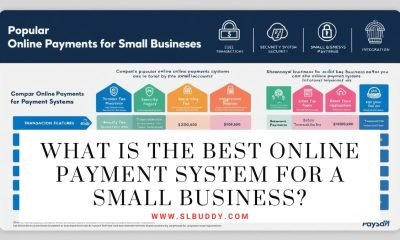
In the realm of entrepreneurship, starting a business is always an exciting venture, but it can also prove to be financially challenging, particularly for those operating with a minimal budget.
Understanding how to effectively allocate your resources and make every dollar count is a critical skill for success.
In the forthcoming sections, we will delve into the finer details of managing your startup costs, stretching your budget, and making strategic financial decisions.
We’ll explore various money-saving strategies, including cost-effective marketing, leveraging technology for efficiency, and capitalizing on free resources. With small, actionable steps, you will be able to turn a lean budget into a firm foundation for your burgeoning business.
Bootstrap Your Business
Bootstrapping involves building your business from scratch without external financial assistance.
This means relying on personal savings or revenue from the business to finance operations.
Although challenging, it promotes frugality and creativity. When you bootstrap, every expense is carefully considered, and there is a greater sense of ownership and accountability.
This approach also helps build a lean business model that can weather tough times and adapt to changing market conditions. Furthermore, buy used filing cabinets, computers, and other office equipment to keep costs low. Consider utilizing co-working spaces instead of renting a traditional office space, or working remotely to save on rent and utilities.
In the end, bootstrapping can help you develop a lean, resilient business while keeping your financial commitments in check.
Leverage Free or Low-Cost Software
Numerous software tools are available either free or at a low cost that can manage various aspects of your business, from accounting to project management and marketing. Utilize these tools to cut costs and increase efficiency.
For example, instead of hiring an accountant or purchasing expensive accounting software, consider using a free accounting tool like Wave.
Use project management tools like Trello or Asana to manage projects and tasks, eliminating the need for costly project management software.
Explore free marketing automation tools like Mailchimp or Hootsuite to streamline your social media and email marketing efforts.
By leveraging these resources, you can save a significant amount of money while still achieving professional results.
Remote Work
By allowing employees to work remotely, you can save a significant amount on office space, utilities, and other overhead costs.
Moreover, remote work can often result in increased productivity. Studies have shown that remote workers tend to be more focused and productive as they have fewer distractions and can tailor their work environment to maximize efficiency.
Additionally, hiring remote employees allows for a diverse talent pool, as you are not limited by geographical location.
Embracing remote work also promotes work-life balance and may attract top talent looking for flexible working arrangements.
Furthermore, with advancements in technology, remote work has become increasingly viable and essential for businesses of all sizes.
Outsource Strategically
Rather than hiring full-time employees for every task, consider outsourcing certain tasks. Freelancers or contractors can often do the same job at a fraction of the cost.
This allows you to save on employee benefits, training, and office space while still getting quality work done.
However, it is essential to strategically outsource tasks that are not core to your business and do not require in-house expertise.
For example, if you run a bakery, outsourcing accounting or graphic design tasks can help reduce overhead costs without compromising the quality of your baked goods.
In addition, outsourcing can also help you access specialized skills and expertise that may not be available in-house.
Most importantly, carefully vet and establish contracts with freelancers to ensure the best results and avoid any potential issues.
Negotiate with Vendors

Do not accept the first quote you receive from vendors. Always try to negotiate a better deal or search for alternative suppliers who offer quality goods at a lower price.
Additionally, consider buying in bulk to secure discounts or forming partnerships with other businesses to leverage group purchasing power.
Building strong relationships with vendors can also help you negotiate better deals and payment terms in the long run.
Remember, every dollar saved is a dollar that can be reinvested into your business’s growth.
When it comes to managing your finances, every small decision and cost-saving measure can make a significant impact in the long run. And while a vendor may not initially offer a lower price, they may be willing to negotiate for future business opportunities.
Implement Energy-Efficient Practices
Opt for energy-saving office equipment and encourage power-saving habits to reduce utility bills. For example, use energy-efficient light bulbs and unplug electronics when not in use.
Encourage employees to turn off lights and computers at the end of the day. Additionally, consider utilizing natural lighting and adjusting thermostat settings to minimize heating and cooling costs.
By becoming more conscious of your energy consumption, you can save a significant amount on utility bills while also contributing to a greener environment.
Furthermore, implementing energy-efficient practices can also make your business more attractive to environmentally-conscious customers.
Energy efficiency can sometimes require an initial investment, but in the long run, it can result in significant cost savings and a positive brand image.
Effective Marketing Strategies
Use cost-effective marketing strategies like social media marketing, content marketing, SEO, and email marketing.
These digital marketing methods often yield a high return on investment. Additionally, consider partnering with other businesses or collaborating with influencers to reach a wider audience without spending a fortune.
Furthermore, focus on targeted marketing rather than broad, expensive advertising methods. By knowing your target audience and utilizing cost-effective strategies, you can effectively promote your business without breaking the bank.
Over time, as your business grows and generates more revenue, you can allocate a larger budget towards marketing.
However, at the beginning stages of the business, it is crucial to be mindful of expenses and make every marketing dollar count.
Don’t miss: 7 Reasons Why Payroll Software is Essential for Your Business
The bottom line
Starting a business on a small budget may seem daunting, but with careful planning and strategic decision-making, it is entirely achievable.
Remember to bootstrap, leverage free or low-cost software, promote remote work, outsource strategically, negotiate with vendors, implement energy-efficient practices, and utilize effective marketing strategies.
With these money-saving techniques in your arsenal, you can successfully navigate the financial challenges of starting a business on a limited budget and set the foundation for long-term growth and success.
Keep in mind that every dollar saved is a dollar that can be reinvested into your business and help you achieve your entrepreneurial goals.










